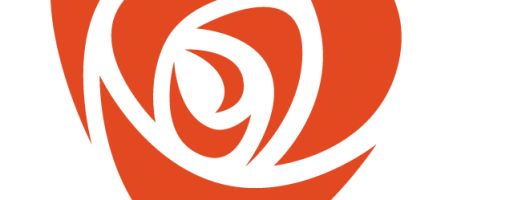
This statement was adopted by South Trøndelag Labour Party during the annual meeting, 14 and 15 March 2009
Translated from Norwegian by the Norwegian Support Committee for Western Sahara. Original here (in Norwegian).
A Free Western Sahara
Western Sahara is by the United Nations considered Africa's last colony and has since 1975 been occupied by Morocco. Already at that time the International Court of Justice in The Hague rejected Morocco's alleged historical claim to Western Sahara. Since 1991 a truce has been in existence between Morocco and Polisario, Western Sahara's liberation movement, while awaiting a referendum on Western Sahara's independence. The African Union has recognised the country and accepted it as a member, but Moroccan authorities are doing everything in their power to prevent the referendum from being effected and have declared that they will not accept any other result than continued Moroccan control of the area.
The occupation resulted in a massive surge of refugees out of Western Sahara, and the majority of the original Sahrawis now live in refugee camps in southern Algeria, in the middle of the desert. The conditions in these refugee camps are difficult, and malnutrition among women and children, poor humanitarian conditions, and a life without future possibilities result in increasing frustration among the refugees. Life in the camps is today based solely on humanitarian aid.
Not all the Sahrawis have fled, but because of an aggressive Moroccan settlement policy, the Sahrawis now constitute a minority in their own country. Moroccan authorities have constructed a 2200-km-long wall through Western Sahara, and this wall is surrounded by the world's largest minefield. The west side, which is under Morocco's control, has great natural resources and waters rich in fish. The desert area to the east is under the control of the Polisario liberation movement.
The Sahrawis who remain in the occupied area are daily exposed to discrimination and breaches of human rights committed by the Moroccan authorities. In Morocco and Western Sahara it is forbidden to express oneself in favour of a free Western Sahara, and the police moves forth brutally against those who break this ban. Imprisonment, police harassment, surveillance, and torture are measures the Moroccan authorities utilise to silence human rights advocates.
Human rights organisations claim that 526 Sahrawi activists have disappeared after confrontations with Moroccan authorities. Simultaneously, Western Sahara has now become far less accessible for journalists than previously. They are denied admittance, are thrown out, and are arrested by Moroccan authorities.
Moreover, Western Sahara is a country rich in natural resources, but these do not benefit the local population. According to the UN, trade in natural resources from an occupied area which is in conflict with the original population's interests and without any of the profits going to them is a breach of international law. The Ministry of Foreign Affairs advises against all business activity in the area in light of the fact that removal of natural resources from non-autonomous areas is against international law. Nevertheless, there are several examples of Norwegian companies that make a profit from this, such as the Norwegian seismic survey company Fugro-Geoteam, which, on assignment for the Moroccan authorities, is participating in oil exploration in occupied Western Sahara. This kind of activity legitimises Morocco's claim to sovereignty and undermines the peace process.
South Trøndelag Labour Party Demands:
- That Norway follow the African Union and recognise the Sahrawi Arab Democratic Republic
- That the Norwegian government underline that Western Sahara is at present occupied by Morocco
- That Morocco tear down the wall and withdraw the illegal settlements from Western Sahara
- That Norway put pressure on Moroccan authorities in order to liberate political prisoners and give the Sahrawis freedom of speech and freedom to organise
- That the UN forces (MINURSO) receive a broadened mandate to monitor and report human rights breaches in Western Sahara
- That aid to the refugee camps in Algeria be increased
- That the government more clearly dissociate itself from Norwegian companies' activity in the occupied areas of Western Sahara
- That the Norwegian Government Pension Fund Global withdraw from Fugro-Geoteam's parent company Fugro NV if its involvement in Western Sahara is not terminated.
NY Check new Western Sahara poster!
“Try to Visit Western Sahara”…
The Security Council fails Western Sahara and international law
On 31 October 2025, a new resolution was adopted in the UN Security Council calling on the Saharawis to negotiate a solution that would entail their incorporation into the occupying power, Morocco.
Saharawis Demonstrate Against Trump Proposal
The United States has proposed in a meeting of the UN Security Council on Thursday that the occupied Western Sahara be incorporated into Morocco.
Skretting Turkey misled about sustainability
Dutch-Norwegian fish feed giant admits using conflict fishmeal from occupied Western Sahara. Last month, it removed a fake sustainability claim from its website.



